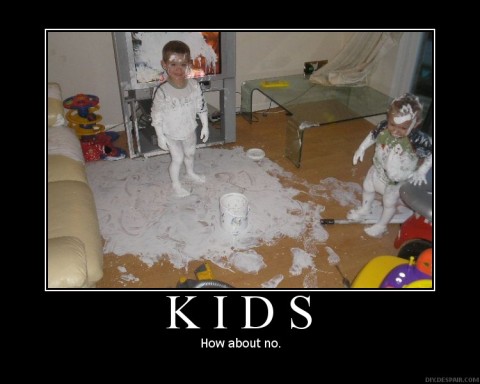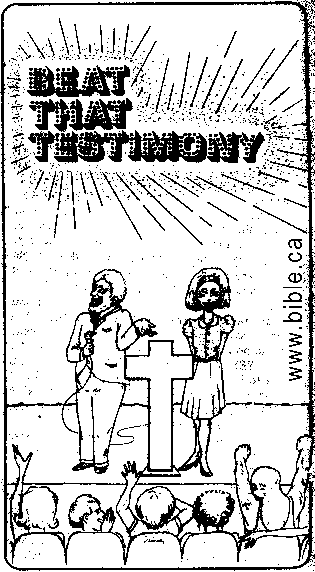

It's unbelievable to me the amount of outward negativity there is associated with having kids. I guess, given our immediate fulfillment type culture, it makes sense, but I find this sentiment equally in secular society and among those Christian (and Catholic) friends whom I know believe that children are a blessing from God. Still, I'm sure if you drilled down into them, most people would find positive words to say about being a parent and their kids. It's just that my idyllic, Theology-of-the-Body-influenced self is so struck by the fact that the first words out of parents' mouths are always something to do with how negatively impacted their lives are.
Like I said, I recognize that with me being an expectant Dad, I probably still have on rose-colored lenses and that I honestly have no real world experience with the emotions of being up in the middle of the night with a wailing baby. I definitely don't want to discount the difficulty and enormous amount of self-sacrifice required and I suppose technically, from the lens of the Bible (Romans 8:13, Luke 9:23, Galatians 5:24, etc), people are correct that their lives are over because they are dying to themselves for the sake of another, but I somehow doubt that's what people really mean in the moment.
I think partly what I'm responding to is the erosion of the nuclear family in modern society. Like I said earlier, the prevailing mindset seems to be one that is self-serving and so those things that go against that mindset probably feel the most painful. As a result, in our status-updating culture, that discord is at the front of our minds and so maybe that's why it gets shared so often.
I'm not really asking that parents no longer complain because at times, it's probably therapeutic. Sharing honestly about your current emotional/mental/physical state can probably help people connect relationally, ie. sharing how tired you are because you've been trying to soothe a colicky baby or how frazzled you are from trying to round up a bunch of kids to get to church. But it's those sweeping statements that are more a factor of perspective, intentionality, and desire for affirmation that seem dangerous to me. Stuff like, "Oh, you're pregnant? Congrats! Your life is over! Kiss your sex life goodbye! You'll never travel again!" I just want a bit more balance.
My prayer is that I can represent a more Truthful understanding of family in my life (Psalm 127:3-5). But check back in with me after October. I might be feeling pretty sheepish.
